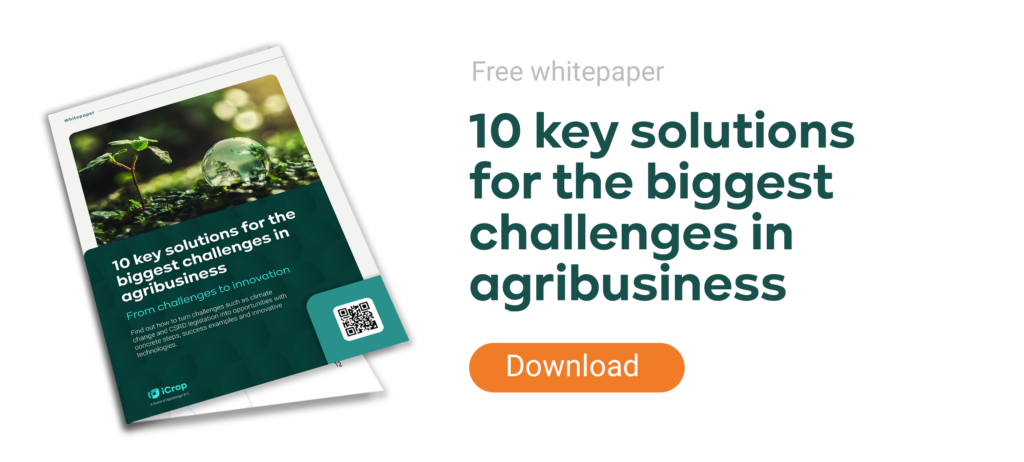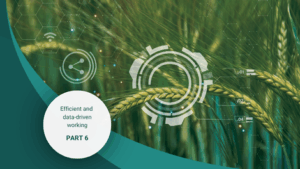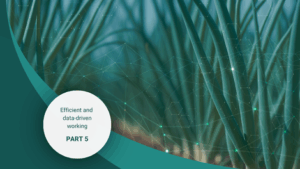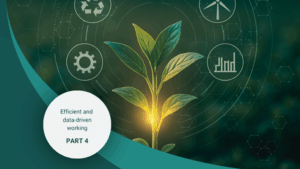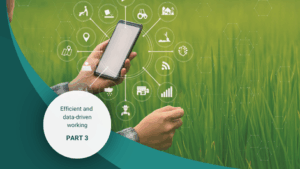Sustainable farming: From social responsibility to business success
Sustainability is often seen as an obligation to comply with regulations and societal expectations. Yet sustainable farming also offers great opportunities for improving profitability and future-proofing your business. By using resources such as water, fertilizers and crop protection products more consciously, farms can not only reduce their environmental footprint, but also cut costs and operate more efficiently.
In addition, buyers and consumers increasingly appreciate companies that are actively working toward a more sustainable agricultural system. Retailers and exporters prefer products with lower environmental impact, giving companies that invest in them a competitive advantage.
Inspiring examples of sustainable innovation in agriculture
The agricultural sector has an increasing number of innovative solutions to achieve sustainability goals. Some examples:
- Precision Farming: By using sensors, drones and data technology, farmers and advisors can accurately determine where and when resources are needed. This leads to less waste and better yields per acre
- Efficient water management: Technologies such as soil moisture monitoring help optimize irrigation. This reduces water use to exactly what is needed, reducing both costs and environmental pressure
- Sustainable crop protection: By linking observations and data in a platform such as iCrop, diseases and pests can be detected in time. This allows preventive measures to be taken, reducing the use of crop protection products
These innovations show that sustainability and profitability can go hand in hand. Companies that anticipate this early reap the benefits.
How technology like iCrop helps you achieve sustainable goals
CiCrop is more than a data platform – it is a powerful partner that supports you in your sustainability ambitions:
- Resource use optimization: Through integrated tools, iCrop helps growers and advisors minimize the consumption of fertilizers, water and crop protection products. This reduces costs as well as ecological impact.
- Monitoring sustainability goals: With iCrop’s dashboards, companies can easily track and demonstrate their progress in areas such as resource efficiency.
- Linking observations and action plans: The platform enables users to make decisions based on data, such as determining the optimal time for irrigation or spraying
- Transparency to supply chain partners: iCrop makes it easy to create sustainability certifications and reports, which is essential for companies supplying environmentally conscious retailers.
Collaboration: the key to sustainable success
The road to sustainability requires collaboration between growers, consultants and technology companies. By sharing knowledge and data, companies can not only comply with regulations, but also seize new opportunities. With iCrop as a technology partner, crop advisors and agricultural companies can work together toward a more sustainable future, without sacrificing business results.
Curious about iCrop?
Request a live demo!


